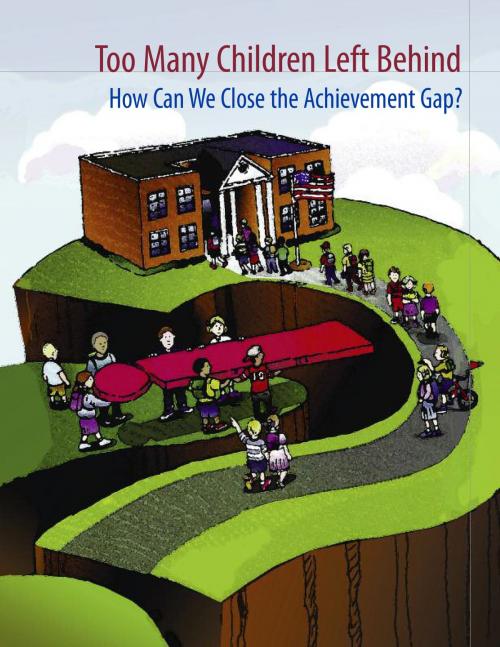Too Many Children Left Behind
How Can We Close the Achievement Gap?
Nonfiction, Social & Cultural Studies, Social Science, Cultural Studies, Minority Studies, Reference & Language, Education & Teaching, Educational Theory, Educational Reform| Author: | Fannie Flono | ISBN: | 9781946206138 |
| Publisher: | National Issues Forums Institute | Publication: | January 1, 2007 |
| Imprint: | National Issues Forums Institute | Language: | English |
| Author: | Fannie Flono |
| ISBN: | 9781946206138 |
| Publisher: | National Issues Forums Institute |
| Publication: | January 1, 2007 |
| Imprint: | National Issues Forums Institute |
| Language: | English |
In a nation that prides itself on providing equal opportunity for all, too many low-income and minority children are falling behind their peers in school. In an increasingly competitive global arena, the United States cannot afford to ignore this widening achievement gap. What can be done to close it?
This issue book presents three possible approaches for dealing with this problem:
Raise Expectations and Demand Accountability
African Americans, Hispanic, and Native American students in many schools have become victims of what President George W. Bush calls ""the soft bigotry of low expectations."" If we are to close the achievement gap, we must push for increased academic performance of all students, and make educators accountable for the results.
Close the Spending Gap
Schools in low-income, high-minority districts often lack science labs, computers, up-to-date textbooks, and well-qualified teachers who most often choose to work in better-paying, better-equipped suburban school districts. We cannot realistically expect more of poor, minority students until these resource and funding inequities are addressed.
Address the Root Causes
Problems that show up as poor academic performance begin long before low-income minority children come to school. And they cannot be remedied unless we address underlying causes, such as unresolved health problems, poor nutrition, stressful living conditions, and lack of parental support, which are the source of these deficits.
In a nation that prides itself on providing equal opportunity for all, too many low-income and minority children are falling behind their peers in school. In an increasingly competitive global arena, the United States cannot afford to ignore this widening achievement gap. What can be done to close it?
This issue book presents three possible approaches for dealing with this problem:
Raise Expectations and Demand Accountability
African Americans, Hispanic, and Native American students in many schools have become victims of what President George W. Bush calls ""the soft bigotry of low expectations."" If we are to close the achievement gap, we must push for increased academic performance of all students, and make educators accountable for the results.
Close the Spending Gap
Schools in low-income, high-minority districts often lack science labs, computers, up-to-date textbooks, and well-qualified teachers who most often choose to work in better-paying, better-equipped suburban school districts. We cannot realistically expect more of poor, minority students until these resource and funding inequities are addressed.
Address the Root Causes
Problems that show up as poor academic performance begin long before low-income minority children come to school. And they cannot be remedied unless we address underlying causes, such as unresolved health problems, poor nutrition, stressful living conditions, and lack of parental support, which are the source of these deficits.















